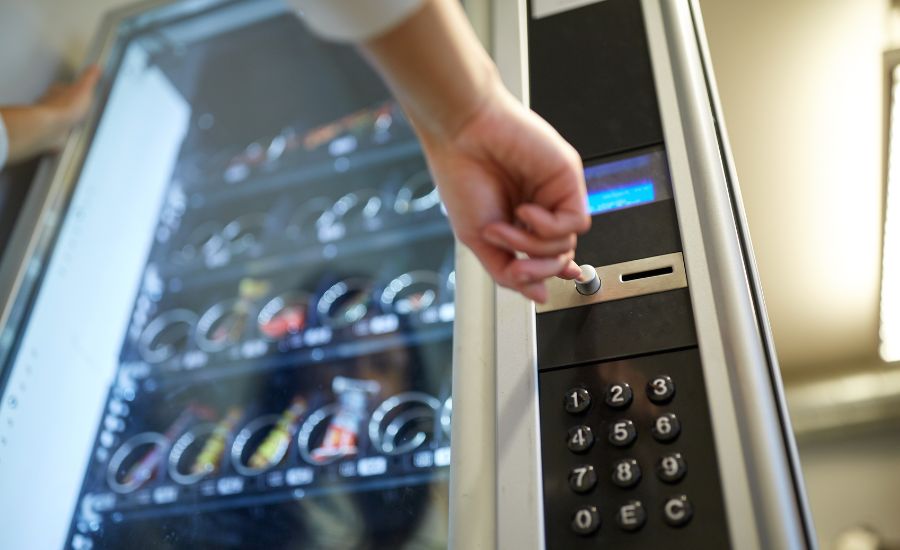
In today’s dynamic job market, many individuals are seeking ways to enhance their income without sacrificing the stability of their full-time jobs. For those earning a W-2 paycheck, vending machine franchises present an appealing opportunity to generate additional revenue while maintaining a flexible work-life balance. This business model allows aspiring entrepreneurs to dip their toes into the world of business ownership without the need for a complete career overhaul.
This comprehensive analysis examines the fastest-growing healthcare franchise opportunities based on unit expansion, revenue growth, market penetration, and long-term demographic tailwinds driving sustainable business model success across diverse investment levels and operational approaches.
Why Choose a Vending Machine Franchise?
Low Overhead Costs
One of the most significant advantages of vending machine franchises is their low overhead costs. Unlike traditional brick-and-mortar businesses, which often require substantial investments in rent, utilities, and staffing, vending operations typically involve a smaller initial investment. The primary expenses include purchasing or leasing vending machines, stocking them with products, and securing locations for placement. This reduced financial barrier makes it easier for individuals to enter the market without taking on significant debt.
Passive Income Potential
Vending machines are designed for passive income generation. Once machines are set up and stocked, they can operate with minimal daily oversight. This means that franchise owners can enjoy the benefits of their investment while focusing on their primary jobs. Regular maintenance, such as restocking products and collecting money, can be done during off-hours or on weekends, allowing for a seamless integration of business and personal life.
Flexible Hours
The flexible hours associated with vending machine operations make this business model particularly attractive for those balancing a full-time job. Franchisees can choose when to manage their vending machines, whether it’s after work, during lunch breaks, or on weekends. This flexibility allows individuals to maintain their current employment while exploring entrepreneurship, making it an ideal side hustle for busy professionals.
Diverse Product Offerings
Vending machines can cater to a wide range of products, from traditional snacks and beverages to healthier options and even non-food items like electronics and personal care products. This diversity allows franchise owners to tailor their offerings to meet the specific needs and preferences of their target audience. By strategically placing machines in high-traffic areas, franchisees can maximize their sales potential and cater to a variety of customer demographics.
Key Statistics on the Vending Machine Industry
Understanding the growth potential of the vending machine industry can help potential franchisees make informed decisions. Here are some key statistics:
• The vending machine industry is projected to reach $25 billion in revenue by 2027, reflecting a steady growth trend driven by consumer demand for convenience.
• Approximately 80% of U.S. households utilize vending machines at least once a year, highlighting the widespread appeal and usage of these machines.
•Franchise operators with multiple machines can see their monthly earnings increase substantially, with some successful franchisees reporting total earnings in the range of $1,000 to $5,000 per month or more, depending on the number of machines and locations.
The Process of Starting a Vending Machine Franchise
Starting a vending machine franchise typically involves several key steps:
1. Research: Begin by researching various vending machine franchises to understand their offerings, support systems, and initial investment requirements. Look for franchises with a proven track record and a strong support network.
2. Business Plan: Develop a comprehensive business plan outlining your goals, target market, and strategies for securing high-traffic locations. This plan will serve as a roadmap for your business and help you stay focused on your objectives.
3. Location Selection: One of the most critical factors in the success of a vending machine franchise is securing prime locations. Consider areas with high foot traffic, such as schools, office complexes, hospitals, and gyms. Building relationships with property managers and business owners can help you gain access to lucrative placement opportunities.
4. Machine Procurement: Depending on the franchise, you may need to purchase or lease vending machines. Ensure that the machines you choose align with your product offerings and target market preferences.
5. Marketing and Promotion: While vending machines often generate sales on their own, promoting your machines can help increase visibility and customer engagement. Utilize social media, local advertising, and community events to raise awareness of your vending services.
6. Ongoing Management: Regularly monitor and maintain your vending machines to ensure they are stocked and functioning correctly. Keeping track of sales data can help you identify trends and adjust your product offerings accordingly.
The Process of Starting a Vending Machine Franchise
Investing in a vending machine franchise offers a unique opportunity for individuals earning a W-2 paycheck to diversify their income and explore entrepreneurship. With low overhead costs, passive income potential, and flexible hours, this business model is well-suited for those who want to maintain their current job while building a side business.
As the vending machine industry continues to grow, now is an excellent time to consider this venture. By conducting thorough research, developing a solid business plan, and strategically selecting locations, you can position yourself for success in this dynamic market. Whether you’re looking to supplement your income or test the waters of entrepreneurship, a vending machine franchise could be the perfect fit for your lifestyle and financial goals.
